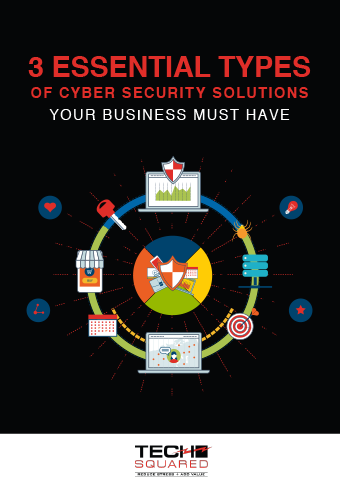Running a business without a cloud backup solution is nearly impossible these days, regardless of the industry you operate in. The question is no longer if you should invest in cloud backup, but how.
While each business will face its own unique needs, there are several things that every business owner should consider before settling on a provider.
To help you navigate the innumerable options out there, TechSquared will discuss your three biggest concerns below.
Storage and scale
Some providers start packages with as little as one gigabyte and scale up from there, even to unlimited options. While it’s never easy to know in advance exactly how much storage you’ll need, trying to come up with a rough estimate — based on current capacity and future projections — can help you save money. Other factors will include the number of computers and employees at your company, how data-intensive daily operations are, and the demands of your particular industry.
It’s important to remember that, while you usually can’t refund unused data, you can almost always add more. A scalable cloud service will allow you to expand your backup capacity as your company and its data needs grow. There’s no need to start with an unlimited option if your provider is flexible.
Resilience
When you pay for a cloud-based web service, you want it to be available whenever you need it. The promise of cloud-based computing, after all, is anytime, anywhere access.
Still, no provider is immune to unforeseen catastrophic events. Natural disasters and cyberattacks by foreign state actors are increasingly a part of our reality, and this trend is not changing anytime soon.
A vendor’s resilience to such events depends on two things: resistance and recovery. The technologies providers use to keep their systems up and running in the face of these challenges differ significantly from vendor to vendor, as do the technologies they use to recover from any such event.
Vendors are ranked by tier based on their ability to resist and/or cope with such events, with Tier 1 providers offering 99.7 percent uptime while Tier 4 providers offer 99.9 percent. While that may not look like much, it makes a world of difference when disaster strikes.
Find out if your vendor uses redundancies (like making backups of your backups) and what sort of equipment they use on-site — including the building itself. While a Tier 1 vendor might run a bunch of backups on servers in a warehouse somewhere, a Tier 4 vendor will control the temperature and humidity of that warehouse to make sure their machines are operating optimally, and they’ll have structural reinforcements to guard against floods, tornados, or other natural disasters their area is prone to. Many even use multilocation backups for added disaster-recovery ability.
Safety and security
This should go without saying, but we’ll say it anyway: always make sure your data is protected. This is even more important in matters of business, where you handle not just your own personal information but that of your clients as well. Switching to cloud storage and computing brings endless benefits, but it does mean entrusting your data to a third party that will store it off-site, on their own equipment.
Cybercriminals are growing increasingly sophisticated, and cloud service providers are a primary target. Don’t settle for less than end-to-end, 256-bit (or above) encryption that is active while your data is stored and when it is in transit or being accessed. Also look for Secure Sockets Layer (SSL) protection and local and off-site storage options.
These are not the only factors to pay attention to when choosing a cloud storage provider, but they are three of the most important ones. Of course, you’ll also want to compare things like pricing, service and support, and the range of plans on offer.
Having a trusted expert on hand to help you sort through options is a good idea too. Tech Squared can help. Call us today.
Download our free eBook!
Read our free eBook, 3 Essential types of cyber security solutions your business must have and how you can protect your business from cyberattacks and data breaches.



